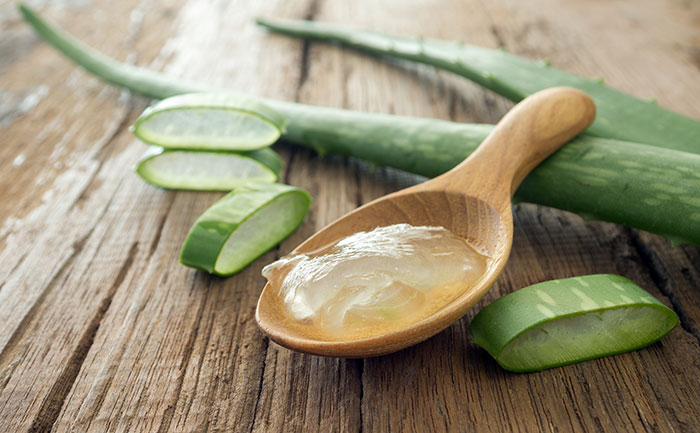
Aloe vera (Aloe barbadensis), or aloe, is a plant originating from Africa and islands of the Indian Ocean. It has been used for thousands of years in Greece, Egypt, India, China and Japan. The plant is known for its benefits in skin conditions (eczema, psoriasis, burns), and for intestinal disorders.
The leaves of the aloe vera provide a juice (from the outer part of the leaves) and a gel (located inside the leaves). The gel is widely used in dermatology and cosmetics. The juice contains anthraquinones, responsible for diarrhea. Aloin is the main anthraquinone responsible for this laxative effect; It is often removed from the juice before consumption. The juice ingredients can also be concentrated in capsules.
The anti-diabetic virtues of aloe vera
In a study published in 2016 (3), Canadian researchers wanted to know the efficacy of aloe vera in reducing fasting glucose and glycated hemoglobin HbA1c. To do this, they consulted international databases and selected nine studies: five were on blood glucose and four on HbA1c hemoglobin.
This meta-analysis showed that the oral intake of aloe vera allows a blood glucose reduction of 46.6 mg / dL. On the side of the glycated hemoglobin HbA1C, which expresses the percentage of hemoglobin to which the glucose is fixed, the decrease was 1.05%.
According to the researchers, people who have more than 200 mg / dL (or 2 g / L) of glucose in the blood are the ones who would benefit most from the benefits of aloe vera: fasting glucose reduction was 109.9 mg / dL at home.
Consumption of aloe vera would stimulate the release of insulin, which would reduce the level of glucose in the blood.
Aloe vera treats sunburn:
To test the effectiveness of aloe vera in after sun products, researchers measured in 2008 the anti-inflammatory potential of two creams on 40 volunteers. (1)
Results: 48 h after application, the aloe vera based cream showed anti-inflammatory effects superior to those of a hydrocortisone cream.
These results were then confirmed in 2013 by a German study which evaluated the anti-inflammatory properties of various plant extracts, including aloe vera. (2) The upper back of 40 healthy individuals was exposed to the minimum dose of ultraviolet to cause redness (erythema). Then the researchers applied the different plant extracts to the irradiated area and to a non-irradiated area, serving as a control. They used a hydrocortisone cream as a control. RESULTS: Although all plants showed anti-inflammatory properties, only aloe vera had a statistically significant effect on UV-induced redness.
Sources
(1) Reuter G. “Investigation of the anti-inflammatory potential of Aloe vera gel (97.5%) in the ultraviolet erythema test.” Skin pharmacology and physicology. 2008;21(2):106-10.
(2) Beikert FC, Schönfeld BS, Frank U, Augustin M. Antiinflammatory potential of seven plant extracts in the ultraviolet erythema test. A randomized, placebo-controlled study].Hautarzt. 2013 Jan;64(1):40-6. doi: 10.1007/s00105-012-2505-x.
(3) Dick WR, Fletcher EA, Shah SA. Reduction of Fasting Blood Glucose and Hemoglobin A1c Using Oral Aloe Vera: A Meta-Analysis. J Altern Complement Med. 2016 Jun;22(6):450-7. doi: 10.1089/acm.2015.0122. Epub 2016 May 6.
Congratulations @hippocrates! You have completed some achievement on Steemit and have been rewarded with new badge(s) :
Click on any badge to view your own Board of Honor on SteemitBoard.
For more information about SteemitBoard, click here
If you no longer want to receive notifications, reply to this comment with the word
STOPDownvoting a post can decrease pending rewards and make it less visible. Common reasons:
Submit